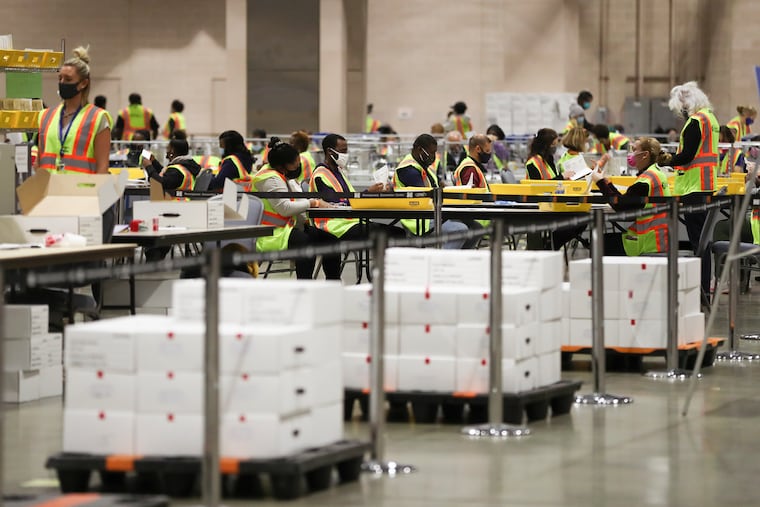As vaccine arrives, meeting and convention planners look ahead to 2021
The hospitality industry is among those hardest hit by the pandemic, and the Philadelphia region has lost billions of dollars in economic activity from a lack of visitor spending.

Most of 2020 was not a year for companies to send employees to conventions and other large gatherings. But as the first doses of a coronavirus vaccine rolled out this week, a health advisory group to the Philadelphia Convention and Visitors Bureau expressed optimism about the return of in-person meetings in late 2021.
“We’re talking about deep into 2021 before we have big meetings, hundreds of people,” David Nash, the group’s chief health adviser and an expert in population health, said during a virtual event Thursday with professional meeting planners.
By that time, hopefully 60% to 70% of the population will have been vaccinated, leading to herd immunity from the disease, Nash said. Even so, he stressed, other precautions would still need to be in place, including better testing capabilities that are both “highly sensitive” and quick to deliver results.
“Herd immunity, mask wearing, hand washing, social distancing, and better testing — if we could do all of those things, I’m looking forward to going to meetings in the fourth quarter of 2021,” Nash said.
The hospitality industry, one of the largest employment sectors in the region, has been among those hardest hit by the pandemic. Philadelphia and the surrounding four counties have lost $5.8 billion in economic activity from a lack of visitor spending, the convention and visitors bureau said, citing research by the firm Tourism Economics.
No meetings or conventions have been held at the Pennsylvania Convention Center since March. Businesses and workers across tourism, travel, and restaurants have contended with budget cuts and layoffs throughout the year.
“We still are just hammered,” said Kavin Schieferdecker, a senior vice president at the visitors bureau, which hosted Thursday’s event.
Nash, dean emeritus of the Jefferson College of Population Health, was joined Thursday by Leonard Friedland, director of scientific affairs and public health at GSK Vaccines.
Both physicians said they were confident in the safety of the COVID-19 vaccines coming to market. The Pfizer-BioNTech vaccine, which gained emergency use authorization from the Food and Drug Administration last week, is now being administered to health-care workers. A second vaccine, by Moderna, is expected to win regulatory approval in the coming days.
Each vaccine trial enrolled more than 30,000 patients for months. “The data have been looked at backward and forwards by independent review boards, independent committees of the FDA, and all of the documents are available for the public,” Friedland said. “I am convinced that the patient safety is there.”
Nash said his daughter, a frontline physician, received the vaccine on Wednesday. “Our whole family celebrated,” he said.
Still, Nash cautioned, it’s important “that we not talk down to people who are against the vaccine” and to engage with those who are skeptical.
“We need to understand where they’re coming from,” Nash said. “If you go online, sadly, there are books and conferences all promoted by the anti-vaccine movement in the country. You cannot deny the size and scope of this movement.”
Friedland said people who are vaccinated could experience short-term effects such as pain, redness, or swelling from the injection, as well as headaches and fatigue. After getting the shot, he said, people should expect to be monitored for at least 15 minutes for any allergic reactions — or 30 minutes for those with a history of allergies.
He recommended that businesses let employees take a day off if they’re not feeling well after being vaccinated.
“The vaccines are making our immune systems activate, so that we can have a defense system later on if we ever receive this virus,” he said, “and that immune activation is what we’re seeing with some fever, pain, and redness.”
For businesses and organizations considering meetings next year, Nash said they should also take employee perspectives into account.
“I believe that not every organization wants to get together,” he said. “We have to find out what’s on people’s minds, what’s their comfort level. And then when they come to a great city like ours, we’ll be ready.”